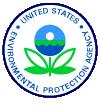Gregory Douglas
Dr. Douglas is a Senior Consultant and Partner at the NewFields Environmental Forensics Practice, and has over 30 years of experience in the field of environmental chemistry. Dr. Douglas has received a B.S. in Chemical Oceanography from the Florida Institute of Technology, and M.S. and Ph.D. degrees in Chemical Oceanography from the Graduate School of Oceanography at the University of Rhode Island. His expertise includes development and application of advanced analytical chemistry methods for the study of the fate and effects of petroleum hydrocarbons and coal tar in marine sediments, soil, waste, waste water, and biota. He has managed government and private industry laboratories that focused on trace metal, petroleum and coal tar contamination in the environment. His project experience includes many notable oil spill studies such as the Exxon Valdez (United States of America (USA)), Haven (Italy), Trecate Blowout (Italy), OSSA II Pipeline (Bolivia), M/T Athos (USA), North Cape (USA), M/V New Carissa (USA), T/V Julie N (USA), M/V Sea Empress (Wales), M/V Selendang (USA), M/V Cosco Busan (USA) and 1991 Gulf War (Saudi Arabia), Deep Water Horizon (USA), Chevron Ecuador E&P Sites (Ecuador), Line 6B Enbridge Oil Spill (USA).
Dr. Douglas has also published and presented extensively on environmental forensic chemistry and analytical methods to identify and reliably monitor the degradation of crude oil in marine sediment and soils. He has testified in both U.S. and international courts (e.g., United Nations, Business International Tribunals) on petroleum related environmental chemistry issues. His project support activities include analytical and field program design, analytical method development, oversight of laboratory quality assurance/quality control programs, hydrocarbon fingerprinting studies, and litigation support for Natural Resource Damage Assessment (NRDA) programs and Superfund Allocation programs.
Dr. Douglas has served as the Vice Chairman of American Society for Testing and Materials (ASTM) Committee D3328 Comparison of Waterborne Petroleum Oils by Gas Chromatography, and on the United States Environmental Protection Agency’s (USEPA’s) National Environmental Technology Application Center Committee to evaluate the effectiveness of bioremediation countermeasures. Analytical tools from this Committee were refined and adopted (published in the United States Federal Register) for the chemical evaluation of biodegradation in environmental samples. In addition, he has served on the Petroleum Environmental Research Forum Total Petroleum Hydrocarbons Working Group. This group developed analytical methods for evaluating the ecological and human health risks associated with petroleum contamination sites. Finally, Dr. Douglas served as the senior forensic chemistry advisor to the USEPA Federal On-Scene Coordinator and Incident Commander for the Kalamazoo River Line 6B Oil Spill.
Contact Information: gdouglas@newfields.com; 781-681-5040
Dr. Douglas is a Senior Consultant and Partner at the NewFields Environmental Forensics Practice, and has over 30 years of experience in the field of environmental chemistry. Dr. Douglas has received a B.S. in Chemical Oceanography from the Florida Institute of Technology, and M.S. and Ph.D. degrees in Chemical Oceanography from the Graduate School of Oceanography at the University of Rhode Island. His expertise includes development and application of advanced analytical chemistry methods for the study of the fate and effects of petroleum hydrocarbons and coal tar in marine sediments, soil, waste, waste water, and biota. He has managed government and private industry laboratories that focused on trace metal, petroleum and coal tar contamination in the environment. His project experience includes many notable oil spill studies such as the Exxon Valdez (United States of America (USA)), Haven (Italy), Trecate Blowout (Italy), OSSA II Pipeline (Bolivia), M/T Athos (USA), North Cape (USA), M/V New Carissa (USA), T/V Julie N (USA), M/V Sea Empress (Wales), M/V Selendang (USA), M/V Cosco Busan (USA) and 1991 Gulf War (Saudi Arabia), Deep Water Horizon (USA), Chevron Ecuador E&P Sites (Ecuador), Line 6B Enbridge Oil Spill (USA).
Dr. Douglas has also published and presented extensively on environmental forensic chemistry and analytical methods to identify and reliably monitor the degradation of crude oil in marine sediment and soils. He has testified in both U.S. and international courts (e.g., United Nations, Business International Tribunals) on petroleum related environmental chemistry issues. His project support activities include analytical and field program design, analytical method development, oversight of laboratory quality assurance/quality control programs, hydrocarbon fingerprinting studies, and litigation support for Natural Resource Damage Assessment (NRDA) programs and Superfund Allocation programs.
Dr. Douglas has served as the Vice Chairman of American Society for Testing and Materials (ASTM) Committee D3328 Comparison of Waterborne Petroleum Oils by Gas Chromatography, and on the United States Environmental Protection Agency’s (USEPA’s) National Environmental Technology Application Center Committee to evaluate the effectiveness of bioremediation countermeasures. Analytical tools from this Committee were refined and adopted (published in the United States Federal Register) for the chemical evaluation of biodegradation in environmental samples. In addition, he has served on the Petroleum Environmental Research Forum Total Petroleum Hydrocarbons Working Group. This group developed analytical methods for evaluating the ecological and human health risks associated with petroleum contamination sites. Finally, Dr. Douglas served as the senior forensic chemistry advisor to the USEPA Federal On-Scene Coordinator and Incident Commander for the Kalamazoo River Line 6B Oil Spill.
Contact Information: gdouglas@newfields.com; 781-681-5040


